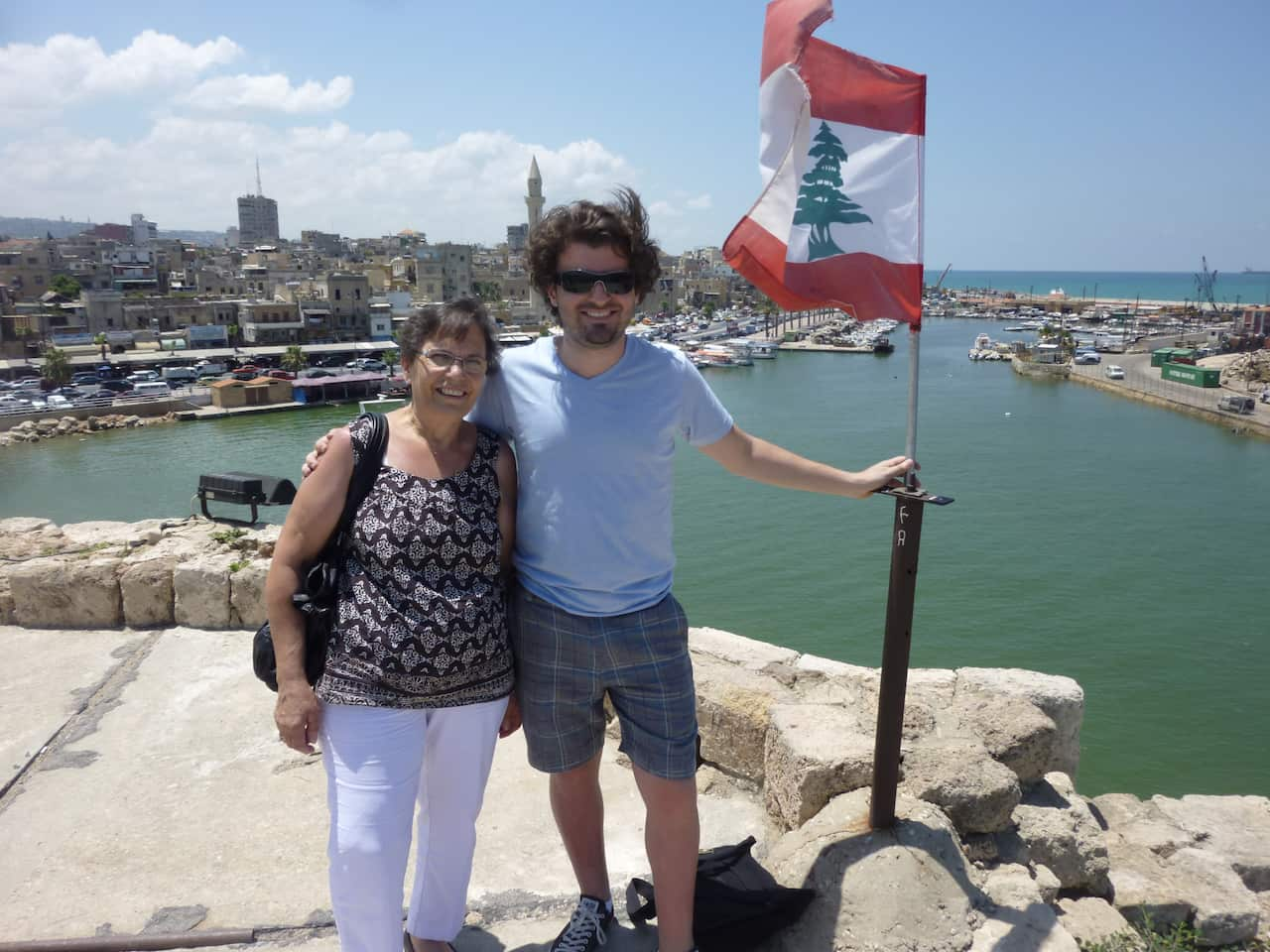As one of millions of Lebanese in the global diaspora, watching the current anti-government protests in Beirut from afar has been surreal.
Thousands of protesters have been demonstrating in the centre of the country’s capital over proposed tax increases, austerity measures and alleged corruption. According to reports, the protestors have been “cheerful, buoyant and hopeful”, as people of all ages and religions sang and danced in the streets.
After spending hours (and hours) over the past week or so glued to Twitter and Instagram stories, I can’t help but feel a strong pull to be there, in the thick of it all. To drape myself in the iconic cedar flag and join hands with strangers as we dance the dabke on the streets. To be swept up in the spectacular show of unity.
Yet as a member of the diaspora, I have also questioned if I had any place in the uprising. My mum may be Lebanese – hailing from El Mina, a part of Tripoli – but I was born and raised in Sydney and now live in London. I may have several cousins in Lebanon, I may regularly cook its glorious food or partake in cultural activities, and I may have inherited cultural idiosyncrasies and a rich family history – but my connection to the country is still limited. I don’t even hold Lebanese citizenship, and I’ve only been to Lebanon once. Even then, I felt like an outsider as my Arabic takes after the dialect of my late father’s – a Palestinian – mixed with an Australian accent. As much as I yearn to take part in the Lebanon protests, I’m not quite sure if I had any right. I also pondered the same for my mum. After all, she immigrated to Australia in 1967 when she was 19, well before the civil war left a traumatic scar on Lebanon. The youngest of seven, by the time she got married to my dad in 1970, four of her siblings had also immigrated to Australia, and by the end of the decade her own parents moved over as well. Mum also became an Australian citizen in the early 70s – not that keeping her Lebanese citizenship would’ve helped anyway, thanks to the country’s patriarchal nationality laws. In fact, it wasn’t until 2011 that mum had the chance to visit Lebanon again, when I took her with me as part of a promise for my late father.
I also pondered the same for my mum. After all, she immigrated to Australia in 1967 when she was 19, well before the civil war left a traumatic scar on Lebanon. The youngest of seven, by the time she got married to my dad in 1970, four of her siblings had also immigrated to Australia, and by the end of the decade her own parents moved over as well. Mum also became an Australian citizen in the early 70s – not that keeping her Lebanese citizenship would’ve helped anyway, thanks to the country’s patriarchal nationality laws. In fact, it wasn’t until 2011 that mum had the chance to visit Lebanon again, when I took her with me as part of a promise for my late father.

Elias Jahshan with his mother in Saida, Lebanon in 2011. Source: Supplied
But when I FaceTimed Mum last week, I realised that question didn’t really matter. Prior to the uprising in Lebanon, Mum always complained about how all the politicians she sees on Arabic satellite news channels gave her a headache – she was someone who generally disliked politics. But this week, there was a passion in her that I hadn’t seen in a long time.
At 72, the protests taking place back home had galvanised her. She spoke with pride and solidarity for her fellow Lebanese, and respect for the whole country abandoning sectarian politics, religious differences and class divisions to unite as one. She also laughed in admiration at her hometown for grabbing headlines with its DJ-led protest party.
When I asked if she was worried about the future, referring to how some uprisings in regional countries led to worse circumstances for the people, Mum only had hope.
I’ve been reminded of a beautiful thing: I’m part of an amazing, diverse community
Speaking to Mum and seeing her pride reminded me that although I my roots lie in Sydney and London, I will always be Lebanese. Not only that: I am just as much Lebanese as I am Palestinian. And that I am just as much Arab as I am Australian. There is no such thing as half and half.
In the midst of questioning my role as a member of the diaspora, I’ve been reminded of a beautiful thing: I’m part of an amazing, diverse community that goes beyond the tiny country on the eastern shores of the Mediterranean. I’ve been reminded of the resilience and courage of the Lebanese, and it’s something that lives on in my mum and her family.
Elias Jahshan is an editor and freelance writer based in London. He is a contributor to ‘Arab, Australian, Other: Stories on Race & Identity’, out now through Picador. Follow him on Twitter: @Elias_Jahshan
Share



